In the 20th century, public intellectuals were the international stars of literature and ideas — they were Albert Camus, James Baldwin, Susan Sontag, Roland Barthes, Frantz Fanon and too many others to name in the “west.” In the Arab world and Africa there was a time when we looked to writers like Mouloud Feraoun, Kateb Yacine and Assia Djebar in Algeria and Ghassan Kanafani out of Palestine, as well as a parade of intelligensia from Egypt, Iran, Iraq, Morocco and beyond. But who do we turn to, today? That is the question that our editors attempt to address in the following sketches.
SINAN ANTOON
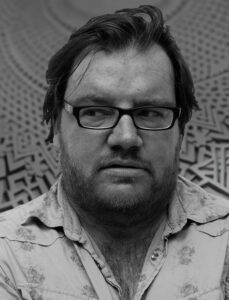
Born in Iraq, Antoon is an academic, author, filmmaker, poet, and activist. A long-time critic of Saddam Hussein, Antoon was forced to flee Iraq in 1991. His position against the US invasion of Iraq which he blames “for the current corruption, primarily, because it created the post-Saddam political arena and populated it with its allies,” sets him apart from most other Iraqi public intellectuals in the diaspora.
Sinan Antoon’s contribution to the Arab literary canon is immense and far-reaching. With several titles to his name (in Arabic as well as in other languages), Antoon has also contributed numerous translations of Arabic poetry into English, most notably his co-translation of a selection of Palestinian poet Mahmoud Darwish’s work, published under the title Unfortunately It Was Paradise, which was nominated for a PEN Prize for translation.
His film About Baghdad (2003), on which he collaborated and in which he is featured, was called by the New York Times “emotionally and intellectually challenging.” The film won the award for best documentary at the Big Apple Film Festival in 2004 and appeared at numerous film festivals around the world.
Antoon’s work has received not only accolades but the praise of many of the 21st century’s intellectuals, both inside the Arab region and beyond. If anything, Antoon’s superpower lies in his sensitive approach to the human condition, allowing him to lend his voice to those of his countrymen silenced by a lifetime of fear, consuming violence and oppression. And yet, oftentimes he is left “speechless, like many of us are,” he comments in one interview. “But we are in the business of words so we have to somehow try and represent the effects of all of this on human beings.”
NAJWA BIN SHATWAN
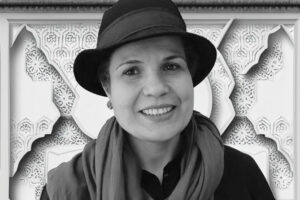
A Libyan academic and novelist who was listed in 2009 as one of the 39 best Arab authors under the age of 40 by Hay Festival’s Beirut 39 project, she presently lives in Italy. Bin Shatwan’s doctoral research focused on the slave trade in Libya and the repercussions on Libyan society and organization in the Ottoman period (1552-1911). This resulted in her seminal novel The Slave Yards (Syracuse Press 2020), which is set in late 19th century Benghazi, about a taboo relationship which lifts the lid on the harrowing circumstances of slaves, particularly women, in Libya, opening a never-before window onto a dark chapter of Libyan history. “The slavery that I wrote about that was prevalent in the last century in Arab and Islamic countries came back,” she said in an interview with Banipal, “… when Daesh took control of areas in Iraq, Syria; took women captive and sold them in slave markets. Daesh took us back to the Dark Ages while we’re living in the 21st century! Isn’t writing about Daesh at this time, a sort of historical writing?”
Bin Shatwan’s stories defiantly focus on topics considered “sensitive” for a woman to tackle in Libya as well as in the Arab region, and yet she’s made it her life’s mission to break her fear of society’s social, political and religious control, relying in her works on a melange of dry wit and a dark sense of humor.
— Rana Asfour
AMIN MAALOUF
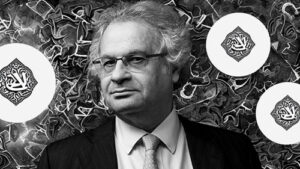
Amin Maalouf captured my imagination with his novels Leo Africanus (based on the life of the adventurer-scholar Hasan Al-Wazzan, who wrote the world’s first trilingual dictionary, in Latin, Arabic and Hebrew) and Samarkand (riffing on the life of Omar Khayyam). But it was In the Name of Identity (2000), which became a touchstone for a generation of writers and thinkers who found themselves navigating between east and west. The book anchored us in our belief that we are in fact more than just our nationality or our mother tongue, that we are multiple, a human condition that is at the root of the intellectual, who is here to question everything, to take nothing at face value, and who often sees the second and third degree, the palimpsests of life. In the Name of Identity was important to many of us after 9/11, when being Arab or “Middle Eastern” was to be associated inexorably with extremism, with the dramatic and tragic bombings taking place hither and thither (often killing more Muslims than Judeo-Christian westerners).
“Every individual is a meeting ground for many different allegiances, and sometimes these loyalties conflict with one another and confront the person who harbors them with difficult choices,” wrote Maalouf. Like many of us writing in TMR, he related to the region we call “the Middle East, the Mediterranean, the Arab world,” but he also emigrated to France from Lebanon and ultimately, choosing to write in French, became a member of the Académie Française, one of the privileged few non-French writers of Arab origin to belong to that august body (the other being the late Algerian writer Assia Djebar). “Each of us should be encouraged to accept his own diversity, to see his identity as the sum of all his various affiliations,” Maalouf concluded. His ideas didn’t only concern his compatriots from southwest Asia, the Levant or North Africa — Maalouf also conceived of “a new Europe” where the salad of identity would become the norm, as opposed to the more nationalist or tribal tendencies that often separated us.
On September 28, 2023, the Académie Française elected Maalouf to the office of permanent secretary, as reported in Le Monde — a position that effectively makes Maalouf the 24th officer of France. Referring to him as “un homme passe-frontières” (a man beyond borders), the newspaper reminded us that Maalouf started out as a correspondent covering Saigon during the Vietnam War, before he went up to his ivory tower to produce an impressive range of novels and nonfiction titles. His newest, Le Labyrinthe des égarés: L’Occident et ses adversaires, appears in October from Grasset.
AZAR NAFISI
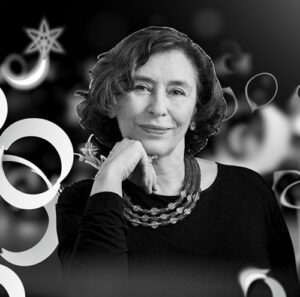
When it comes to intellectual Iranian women living outside of Iran — women who raise their voices against the corrupt Islamic Republic — there is no shortage of troublemakers and writers calling for freedom. Take your pick among Shirin Ebadi, Marjane Satrapi, Gina Nahai, Janet Afary and the list goes on.
As a writer and educator, Azar Nafisi has been in the public eye for decades. Whether teaching literary classics in Iran or talking about freedom and democracy in the United States, she has put herself on the line, taking risks many of us don’t have to. Beyond the book for which she is best known, Reading Lolita in Tehran, she has taught aesthetics, culture and literature at the Free Islamic University, Allameh Tabatabaii, and the University of Tehran (where she was eventually expelled for refusing to wear the mandatory hijab). She was a Fellow and taught for 20 years at the Foreign Policy Institute of Johns Hopkins University’s School of Advanced International Studies. Azar Nafisi has lectured and written extensively both in English and Persian “on the political implications of literature and culture, as well as the human rights of Iranian women and girls and the important role they play in the process of change for pluralism and an open society in Iran.”
Hamid Dabashi, among other exiled Iranian intellectuals, has criticized Nafisi, for among other things being the darling of the misguided Iranian feminist movement — but that was before the #MahsaAmini uprising took off last fall. Whether you like or disdain Azar Nafisi’s voluminous words over the course of more than a dozen books, you cannot discount the fact that she has been in the frontlines when it comes to championing literature and freedom. Her most recent title, after all, is Read Dangerously: The Subversive Power of Literature in Troubled Times. What’s not to like?
— Jordan Elgrably
SHEREEN EL FEKI
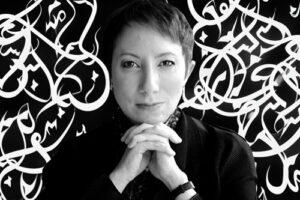
The publication of Sex and the Citadel: Intimate Life in a Changing Arab World by Shereen El Feki in 2013 marked the emergence of a new kind of Arab public intellectual. On her X/Twitter feed she describes herself as: “Writer-academic-activist on sexualities and masculinities in the Arab region. If you really want to know a people, start by looking inside their bedrooms.” The British Canadian Egyptian molecular immunologist turned social scientist has always taken a highly informed, sometimes humorous view on a subject as serious, and potentially dark, as Middle Eastern sexuality.
Sex & the Citadel was the result of five years of research. It challenged stereotypes and gave voice particularly to women across a wide social spectrum, from sociologists to sex therapists in Egypt to Saudi Arabia, Tunisia to Qatar. Although El Feki interviewed “a ton of men” for the book, she admitted to me they didn’t make the final edit “because the women are much more interesting; they are so much more thoughtful.”
She went on to explain, “Men don’t have a clue. You know the classic cartoon of a woman sitting beside her husband and there are bubbles, and she’s thinking, ‘Oh what have I done? What is he thinking?’ You look inside his brain and it is a test pattern essentially. It’s very interesting in any culture to get men to articulate especially around sexuality. They’re not conditioned to do it.”
Yet, her intellectual curiosity was piqued about the opposite sex, and El Feki went on to join Promundo, the male-focused to prevent gender-based violence NGO, in Brazil.
She had just finished surveying men in Egypt, Lebanon, Morocco and Palestine and had been invited by the Kuwait government to survey men in Kuwait when we spoke, in London. This was before the 2017 publication of the report “Understanding Masculinities: Results from the International Men and Gender Equality Survey (IMAGES) – Middle East and North Africa” by Promundo-US and UN Women, for which El Feki served as the principal investigator.
“To be a man in the Arab region, but around the world generally, is largely defined by economics; you are a man if you are a provider. You don’t have many other ways to prove your manhood. And the challenge, of course, in the Arab region is how can you do that when the jobs are so scarce and money is so tight. And it’s not a coincidence that the unemployment rates are highest among young men.”
She explained her research in language that is easily understood. “It’s really clear if you’ve spent time with these young men, they’re all dressed up and no where to go: The stunning boredom of being a young man in Egypt.
“So for them also to assert their manliness is increasingly difficult. Combined with that is the fact that they are raised in the shadow of fundamentalism — that’s the generation that’s come up. We think it is the combination of the two that are leading to these less open [attitudes]. There is something that gets lost in the mix: Although their ideas are quite closed in many respects, their practices are much more open, in some ways. So it’s very often that younger fathers are looking after their kids. It’s younger husbands who are sharing decisions with their wives. So they might not be saying it but they are in a sense doing it.”
Why did she think surveys of Arab sexuality so fascinated the West?
“Actually the problem is the western framing of the Arab region. The sexual misery of the Arabs — this is what Westerns want to hear. They want that sense of cultural superiority particularly now it’s very useful to the ‘othering’ process that these people don’t belong here [as migrants]; they are not ‘like’ us because of this, this and this. They don’t accept women’s rights, they’re not sexually open, they don’t accept sexuality etc. etc. etc. That’s not the reality for people on the ground.
“When I read the criticism of Islam particularly within the frame of sexuality it really is medieval Christian critique remixed for YouTube and Instagram.”
During our conversation she reminded me, “The other thing, for the previous generation, it was the well-intentioned almost colonial rescuing, fallen Arabs sort of [narrative], and the region doesn’t need that anymore. It has its own voices that speak perfect English and understand how the West works.
“A completely new generation of groups have emerged, a lot of them on the internet. They are really feisty and they are tackling issues around sexuality. Despite what I said about young men drifting off to what might be considered a more patriarchal time, there have actually been a lot of men who have stepped up.”
Since we’ve spoken, El Feki has joined the London-based, foreign affairs think tank Chatham House as an associate fellow in the Global Health Program. In June, she co-authored an expert comment, “How to Live and Love under Oppressive Laws,” with the founder of MOSAIC-MENA Charbel Maydaa. They write, “While many are shocked by developments in Uganda, they look like just another day for those living in the Middle East and North Africa (MENA).” Then they point out, “More than four-fifths of countries in the region criminalize same-sex relations (including the death penalty in a handful of states) …”
Interestingly they include a few examples of how draconian laws have been leniently interpreted in some MENA countries like Lebanon, which prohibits “sex contrary to the order of nature;” and Morocco. “… HIV-focused NGOs such as ALCS in Morocco provide prevention, testing, treatment and other support to a range of key populations (including LGBTQ+ individuals), even in the presence of laws criminalizing such groups …”
The expert comment also provides an important link to a 153-page Human Rights Watch report and video, “All This Terror Because of a Photo: Digital Targeting and Its Offline Consequences for LGBT People in the Middle East and North Africa,” about online government entrapment in Egypt, Iraq, Jordan, Lebanon and Tunisia.
In her writings and lectures, El Feki always shares vital information. For this public intellectual on one of the most complex issues of our times, knowledge is power.
Shereen El Feki was featured in “Intimate Life in a Changing Arab World” on Episode 3 of Women of the Middle East Podcast.
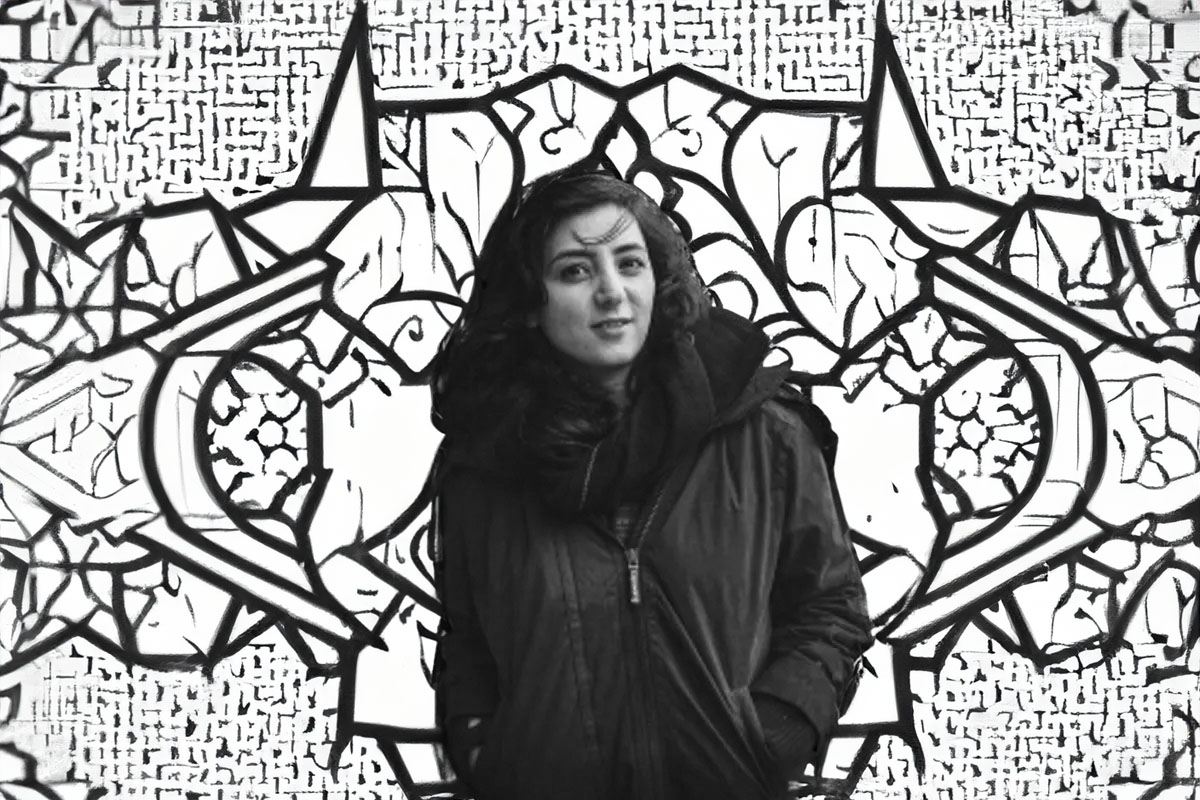
KHALIDA POPAL
In the Middle East women’s bodily autonomy is not a newly contested public space. Recently, however, thousands more women have been putting their bodies on the frontline. A region mired in misogyny can no longer rely on mainly male public intellectuals and political theorists. Action is required. Khalida Popal, a former defender and team captain of the Afghan national woman’s soccer team — once described as “a tireless attacker” on the field — has become a formidable public intellectual in the world of sports and beyond.
Afghanistan has been a terrible country for women’s football. Attacked and called prostitutes because of their sports apparel, players practiced on a NATO airbase. Once Popal’s father and brothers were targeted in a knife attack. She was forced to seek asylum in Denmark, and her brother Idris was murdered.
In 2018, she witnessed the sexual abuse of players practicing in Jordan and helped them bring charges of rape and violence against Afghanistan Football Federation officials, a case that resonated across FIFA’s women’s league, in teams often controlled by powerful male coaches.
During the Taliban’s 2021 recapturing of Kabul, Popal told women players over WhatsApp to ditch their social media accounts and burn or bury their sports kit. She rallied human rights sports organizations, international lawyers and government officials in six countries to find asylum for the threatened athletes. It was a near impossible logistical feat to get them through Taliban-controlled checkpoints and the chaotic crowds at the Kabul airport onto leaving planes. The team now resides and plays in Melbourne, Australia.
Popal continues her crusade to get FIFA to recognize Afghanistan’s national women’s team. She wants them to compete in the international league, even though they represent a country with a government that wants to kill them.
—Malu Halasa
HAZEM SAGHIEH
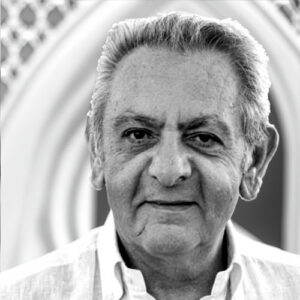
It has become a cliché to describe Lebanese writer Hazem Saghieh as controversial, and yet it is impossible to introduce him without placing that fact front and center. A journalist highly and openly critical of journalism and its inability to affect change in the Arab world, where “the media is the lapdog of those in charge,” he has nevertheless devoted his entire life to it. He began writing for the Lebanese daily Al-Safir in 1974 and has been a fixture of newspaper columns in the region’s most prominent newspapers since, providing political analysis on everything from the Iraqi and Syrian Ba’ath to the crisis of the individual in the Middle East.
Playful and sarcastic, his writings and columns often display the wry humor of someone who’s seen it all, and for that reason he sometimes comes across as more than a little impatient with ideas that he’s already tried on for size and found lacking. And there is hardly any influential ideology in the Arab world that he hasn’t tried on. His 2007 political memoir, in typically defiant fashion entitled This is Not a Memoir (Hathihi laysat seera), traces his evolution through nearly every significant wave of Arab political thought that has swept through the region in the tumultuous latter half of the 20th century. Saghieh divides his book into chapters that each deal with one of his political incarnations: as a staunch Nasserite, a Syrian Nationalist, a Communist and even a supporter of Iran’s Ayatollah Khomeini.
It was the Lebanese civil war that finally disabused him of “all the different forms of totalitarian ideas,” as he puts it, that he’d spent so many long years embracing and then abandoning. “The war had shown me the latter’s failures;” he writes. “I watched all those concepts and theories ravage one another in the streets and alleyways, reduced to slaughter, violation, abductions, and looting.” (Translations from Arabic mine).
Today, he is known as the foremost figure of Arab liberalism, openly contemptuous of what he calls the “anti-politics” of the Arab world (“anti-imperialism, anti-Americanism”) and it is this, more than anything else, that has earned him his controversial label. Still, in a region where so many of the old guard are still hanging on to views they’ve unwaveringly championed for decades, Saghieh has conversely become known for his flexibility of ideas.
“It’s impossible to live through such profound changes and not to change,” he explains in an Al-Jazeera interview in Arabic. “It’s not normal.” And it is this capacity for change that keeps him relevant after 25 books and countless columns, with no sign of slowing down.
MOHAMMED EL-KURD
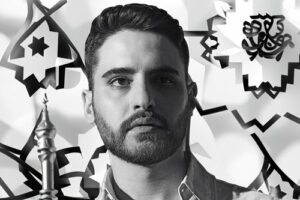
Usually, one reaches a ripe, mature age before being considered a public intellectual, but Mohammad El-Kurd has earned his way onto the list at the tender age of 25. The Jerusalem born and bred, US educated El-Kurd is already among the world’s most famous Palestinian activists, having spoken before the United Nations General Assembly and appeared regularly as a commentator on several major US news channels, including CNN and MSNBC. In 2021, he and his twin sister Muna were named among TIME 100’s most influential people in the world. Both siblings have been campaigning against the Israeli occupation of their homeland — and actual home — since they were children. Thrust into the role of activists when settlers forcibly took over part of the family home in 2009, it was the campaign to save the Sheikh Jarrah neighborhood in 2021 that truly catapulted him into the public eye, as demonstrations against the takeover of the Jerusalem neighborhood ignited into protests across the Palestinian territory — including the lands occupied in 1948. These protests were so widespread that some hailed them as harbingers of a third intifada, and El-Kurd was front and center, live tweeting all the Jerusalem protests in perfect, precisely-wielded English and even getting arrested at one point.
But it is not El-Kurd’s activism that prompts me to call him a public intellectual, it’s his writing. El-Kurd is a poet (his debut collection, Rifqa, was published by Haymarket Books in 2021), a correspondent for The Nation and was also recently appointed Culture Editor for Mondoweiss. He writes with an eloquence so fierce and fiery that some of his columns read like rousing manifestos. But his work isn’t mere rhetorical flourish or oration — the outrage is always keenly balanced by a stony, calm intelligence, and thus his words, no matter how forceful, always feel surgically chosen.
Poetry: Mohammed El-Kurd’s “Rifqa” Reviewed
What makes him so electrifying as a writer and speaker is that he openly says what so few dare to say. “I do not care whom this terminology offends,” he said in his address before the UN General Assembly, having repeatedly referred to Israel as a settler-colony, and indeed, he remains true to his word. A recent column in Mondoweiss generated great controversy as El-Kurd did his typical thing of “saying the quiet part out loud,” writing about how he rejects the Palestinian imperative to have to speak carefully and politely about his occupiers — who happen, through no fault of his own, to be Jewish — in order to avoid rousing the specter of European antisemitism. Agree or disagree with his in-your-face approach, El-Kurd remains a powerful, unapologetic Palestinian voice, thrillingly speaking truth to power in power’s own language.
—Lina Mounzer
KHALED FAHMY
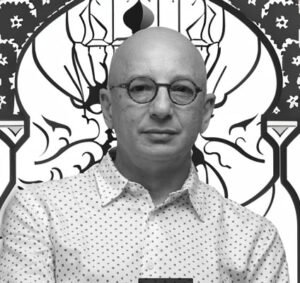
Khaled Fahmy is the author of three books: All the Pasha’s Men (American University in Cairo Press 2010) about the statehood of Muhammad Ali, The Body and Modernity (Egyptian National Library and Archives 2005), about the medical practices in Egypt during the era of Muhammad Ali; and In Pursuit of Justice (University of California Press 2018), which is set in the 19th century and centers around the Egyptian state’s treatment of Egyptians’ bodies. Although all three books have had profound influence in Egypt, it is the third title that places Fahmy as a writer ahead of his game.
In In Pursuit of Justice, Fahmy investigates several decrees (faraman), laws and documents issued during Mohammad Ali’s reign, and with a careful eye to detail, he deduces, in the most direct and simple way, the legislator’s true intentions.
Fahmy writes free of ideological or cultural biases. Unlike many of his countrymen, his affiliations are always for the Egyptian people, never for the State. Choosing to deviate from the conventional narrative, his aim is to reshape the image of the ruler and his assistants, based on the documents and mandates they authored and the decisions they undertook while in office.
Every re-reading of Fahmy’s books, without fail, reminds me of the beloved children’s folktale about the shepherd and his sheep. The shepherd (the ruler) works to feed his sheep (the people), and with the help of his dogs, protects them from the evil wolf. As long as the sheep don’t flock from the herd, everyone lives happily. And yet, it is the same shepherd, Fahmy warns in the tragic addendum he adds to the story, who every year, a few days before Eid al-Adha, leads the sheep to market to be slaughtered.
HESHAM SALLAM
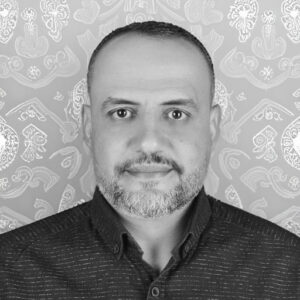
Hesham Sallam rocketed to fame in 2018 when he headed a small team with limited resources and even more limited funding into the desert on an excavation dig. The team managed to find and unearth the remains of a new species of dinosaur that they later named Mansourasaurus Shahina. Sallam and his team became the leading paleontologists in the country and were hosted on several local and international media channels.
With a very active presence on Facebook, Sallam appears not only as a scientist consumed with what he does, but he is also a keen proponent of the theory of evolution in a region that considers the mere thought of it as heresy. Every new post brings on an incessant stream of comments whereby the debates — and insults — revolve around a comparison between the theory of evolution and the story of creation as it appears in the holy Qur’an. Sallam always stands his ground, pressing the point that his aim is merely in presenting the scientific facts as they are — no more and no less.
Sallam’s influence is widespread across the region and his incessant talk about evolution — which I find at times redundant, although still valuable — has earned him the admiration and respect of many. Today, in addition to digging and wrangling on Facebook, Hesham Sallam teaches at the American University in Cairo, following his previous work at Mansoura University, where he founded the Mansoura University Center for Vertebrate Paleontology.
—Mohammad Rabie



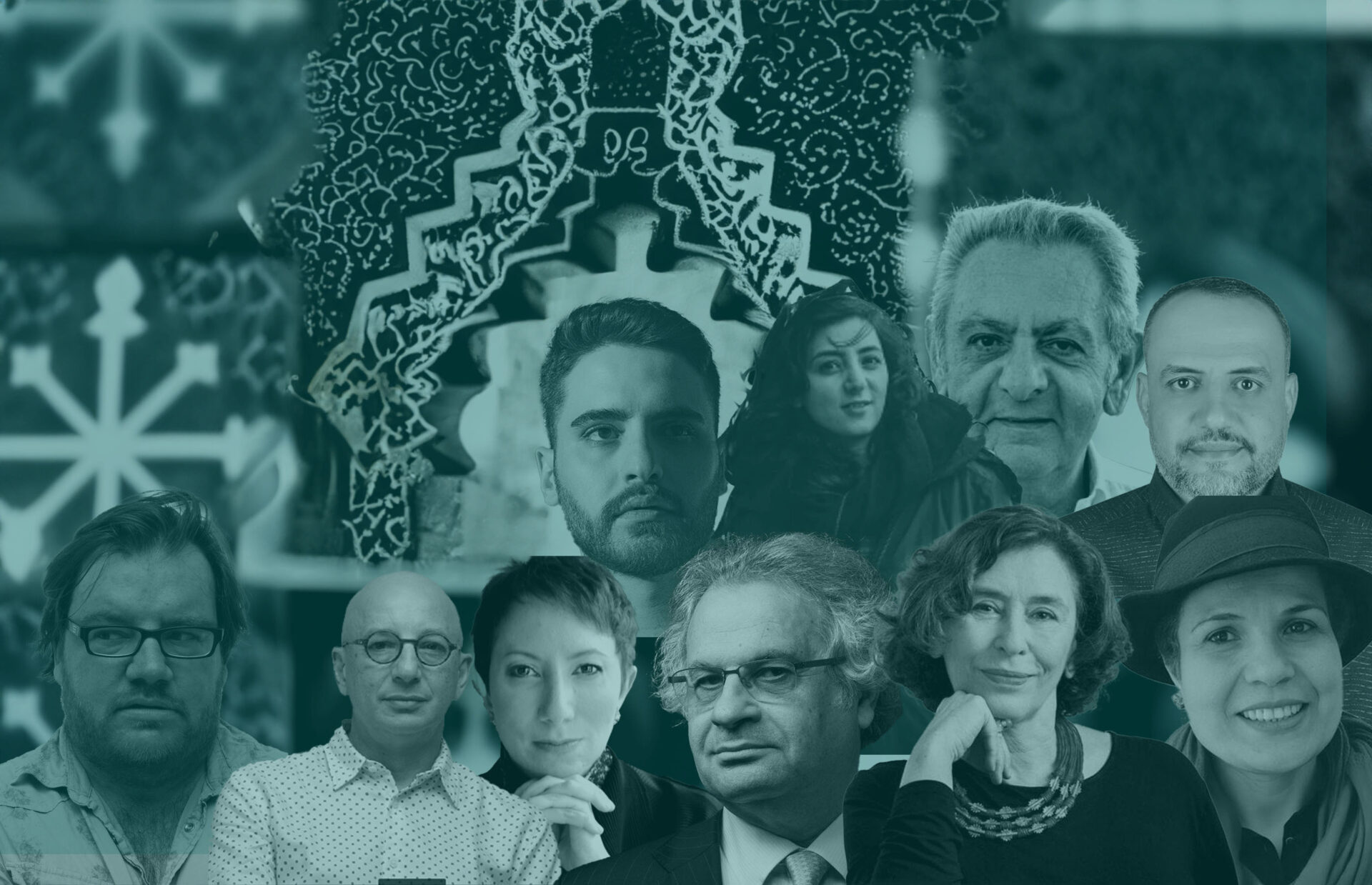

This is such a brilliant list. I want to read all these works. Many of the names are new to me. Thanks Markaz for compiling it, with proper profiles.